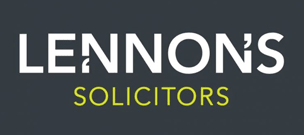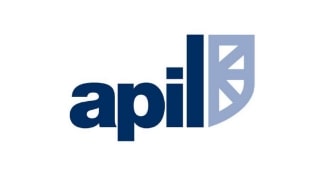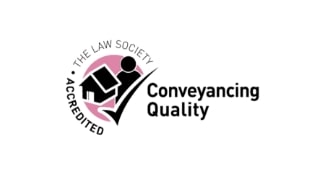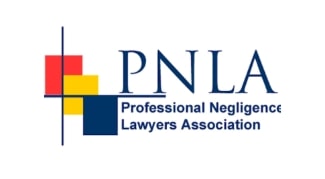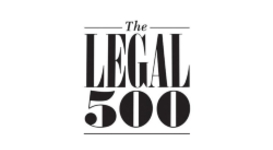
Leaseholder enfranchisement: process and potential disputes
There are two main types of property ownership in England and Wales; freehold ownership and leasehold ownership. A freeholder has the ultimate ownership of the land and owns all the buildings on that land for an unlimited period of time. However, a leaseholder just owns a right to occupy and possess land for a predetermined amount of time which is granted by a freeholder. A lease will often limit what the leaseholder can do with or on the property to some extent, for example physically altering or extending the property will generally require Landlord consent.
Typically, most flats are owned on a leasehold basis with a freeholder owning the entire building or block. However, in certain circumstances and if certain criteria are met, leaseholders have the right to purchase the freehold of their of their building, essentially promoting their ownership to freeholder status. This process is known as leasehold collective enfranchisement.
This article gives an overview of the process and potential disputes that may arise between the former leaseholders during the process of collective enfranchisement.
Why bother?
Many leaseholders may question why they should even consider collective enfranchisement if it is such an involved process. The simple answer would be having the benefit of freeholder ownership which grants new rights of control over the property that a leaseholder formerly would not have. These rights include, but are not limited to, decisions as to the insurance and maintenance of the building, which can generate savings when obtaining quotes. Furthermore, collective enfranchisement gives the leaseholders the opportunity to enhance the overall value of their property by making amendments to previous freehold interest terms such as new longer length leases of up to 999 years with no ground rent. Ultimately, collective enfranchisement gives former leaseholders more control over their property by becoming a freeholder, determining what works are done at what cost.
Qualifying for the right
For leaseholders to exercise the right of collective enfranchisement, standard criteria must be met before the decision to exercise the right is made:
1. This right is a collective right, meaning no one leaseholder can act alone. Collective enfranchisement requires at least 50% of the leaseholders of a building acting together to purchase the freehold;
2. The leaseholders must own a ‘long lease’ of their flat. This is defined by a lease with a term of at least 21 years (known as ‘Qualifying Tenants’);
3. At least two thirds of the flats in the building must be occupied by Qualifying Tenants; and
4. Any commercial parts must not exceed 25% of the internal floor area of the buildings.
Whilst there are properties that are excluded from enfranchisement (for example, Crown Property and National Trust Property), these rarely apply. As long as the above are met, collective enfranchisement can occur.
Nominee Purchaser & Company Incorporation
When purchasing the freehold, the leaseholders must nominate a purchaser to buy the freehold. Typically, instead of one leaseholder being nominated, the leaseholders incorporate a management company to be the purchase vehicle of the freehold and each leaseholder becomes a shareholder in that company. As shareholders of the management company, the leaseholders essentially become the new landlord of their own property.
Typically, leaseholders will incorporate a company limited by guarantee. This removes the potential problem of transferring shares each time a leaseholder leaves the building as they would just resign their membership on leaving a property and the new leaseholder is admitted as a member of the company. The rights between the members will be governed by the management company’s articles of association which essentially act as the company’s rulebook for its members.
The Potential disputes
With such a complex and involved process, there is scope for disputes to arise between multiple parties.
Disputes between the current freeholder and the purchasing leaseholders:
1. Right to sell – The freeholder may take issue with selling the property to the collective leaseholders in the first place. After the right of collective enfranchisement is exercised, the freeholder may serve a counter-notice refuting the right. When this occurs, disputes as to entitlement to do so may arise.
2. Purchase price – As with any transaction, the price at which the property is sold is arguably the most important term of sale. Typically, a surveyor is instructed by both purchaser and seller to ascertain the property price. However, should the value of the property be disagreed, this may require the expert surveyors to resolve the matter or negotiation may be required between the parties to come to an amicable solution.
3. Timescale – A seller may raise issue with delay and/or put pressure on the leaseholders to force a transaction through. Any evidence of such undue influence may give rise to a claim.
Dispute between the new shareholders of the management company
As with any new company, there are several important decisions that require member agreement. Many important decisions will require a resolution of the members to be passed as governed by the Companies Act 2006, unless otherwise determined by the company’s articles of association.
However, there may be times when agreement cannot be reached. Whilst collective enfranchisement gives more control, there may be many hands on the steering wheel. Should disputes arise between the leaseholders as to smaller decisions such as property maintenance and insurance, it is in the parties’ best interests to not commence serious litigation as this will result in disproportionate costs being incurred. Amicable settlement on such matters, be it through negotiation or mediation, is far more appropriate.
Should a particular member act in such a manner as to cause loss and/or harm to other members or the management company itself (for example, selling their part at an undervalue), other members who feel they have suffered a loss as a result may be able to make an unfair prejudice petition at Court. For further information about these internal company disputes, please see our Head of Litigation’s article.
How can Lennons help?
Our Commercial Property department has extensive experience in leaseholder collective enfranchisement and our Litigation department will be able to assist should any disputes arise. You can call us on 01494 773377, get in touch by email to hello@lennonssolicitors.co.uk, live chat, or by completing our online enquiry form.
DISCLAIMER: The content of this article has been prepared for informational purposes only. This content does not constitute legal advice, nor does it give rise to a solicitor/client relationship. Specialist legal advice should be taken in relation to specific circumstances.
Articles linked to Commercial Property,companies act 2006,leaseholder enfranchisement,property,freehold,freeholder,property disputes and sharefolder...
There are two main types of... read more
